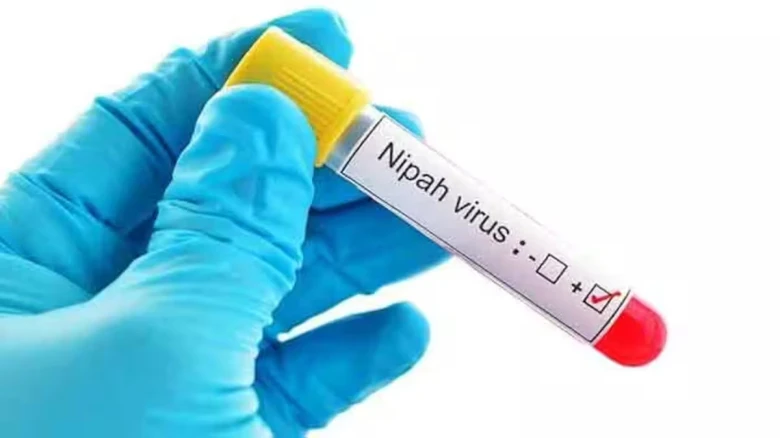Regional

Director General of the Indian Council of Medical Research (ICMR), Rajeev Bahl, issued a stark warning on Friday regarding the...
Digital Desk: Director General of the Indian Council of Medical Research (ICMR), Rajeev Bahl, issued a stark warning on Friday regarding the Nipah virus, emphasizing its alarmingly high mortality rate compared to COVID-19. Bahl stated that the mortality rate in Nipah virus cases ranges between 40 and 70 percent, significantly higher than the 2-3 percent seen with COVID-19.
Concerns over the Nipah virus have escalated as the number of active cases in Kerala has been on the rise. To address this growing threat, the Indian government has decided to procure 20 doses of monoclonal antibodies from Australia for Nipah virus treatment.
Nipah virus is a zoonotic illness that can be transmitted to humans from animals, and it can also spread through contaminated food or direct person-to-person contact. So far, six people have been infected with the virus in Kerala, resulting in two fatalities.
Commenting on the government's decision to acquire more antibody doses, Rajeev Bahl stated, "We received a limited supply of monoclonal antibody from Australia back in 2018, and currently, these doses are available for only 10 patients. Twenty additional doses are being procured, but it's crucial to administer the medication during the early stages of the infection. As of now, no one in India has been treated with this antibody."
According to Bahl, globally, only 14 Nipah virus patients outside India have received monoclonal antibody treatment, and all 14 have survived. He stressed that monoclonal antibody can only be used as "compassionate use medicine" due to the limited research conducted on its efficacy. "Only a phase 1 trial to establish the medicine's safety has been conducted, and efficacy trials are pending. Its use will ultimately be decided by the Kerala government, medical professionals, and the patients' families," Bahl added.
As the Nipah virus continues to pose a serious threat in India, the government and medical community are working diligently to prevent its further spread and explore potential treatments to combat its high mortality rate.
Leave A Comment